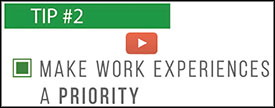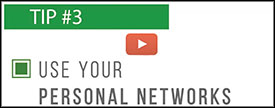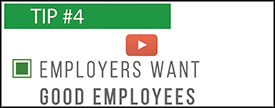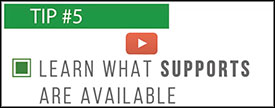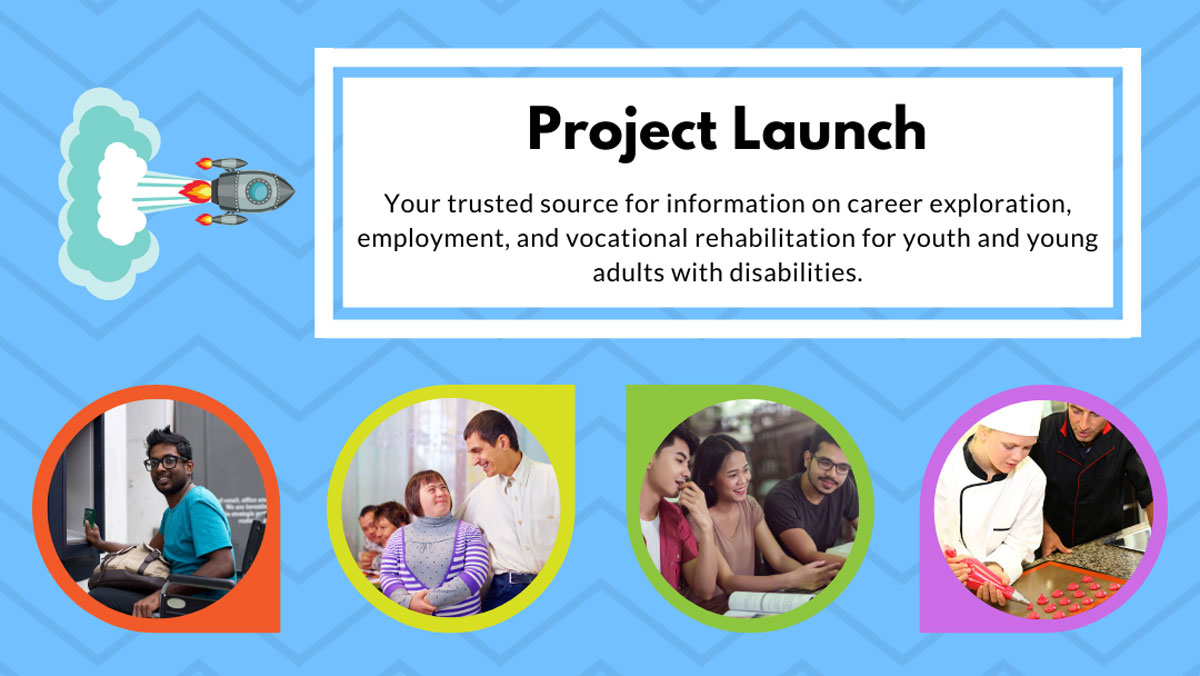
For transition-age youth and young adults with disabilities, success often depends on having the right services in place to support employment, education, and inclusion in the community. Fortunately, there are laws that help.
The Individuals with Disabilities Education Act (IDEA), the Rehabilitation Act, the Workforce Investment Act, and the Americans with Disabilities Act (ADA) guarantee people with disabilities a free and appropriate education, ensure civil rights, and protect young adults from employment discrimination based on their disabilities.
Project Launch helps youth, adults, families, professionals, and employers understand how these laws can help individuals with disabilities create a positive future. Project Launch works in partnership with 8 parent centers in Kentucky, Ohio, Indiana, Michigan, Illinois, Wisconsin, and West Virginia and is funded by the Rehabilitation Act.
How Project Launch Helps
Through individual assistance, workshops, resources, and more, Project Launch helps youth and young adults with disabilities pursue meaningful careers, live as independently as possible, and enjoy inclusion at work and in the community.
Project Launch provides a practical website and an array of helpful publications, webinars, parent tip sheets, and videos on disability-related topics.
Guidance and information is also offered on transition, employment, and the role of vocational rehabilitation counselors and rehabilitation services.
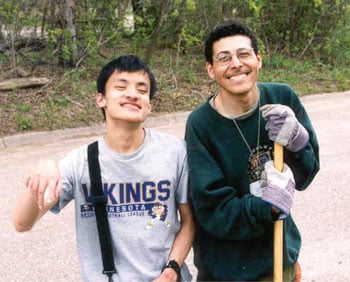 |
Transition ResourcesProject Launch provides transition-age youth and their families:
|
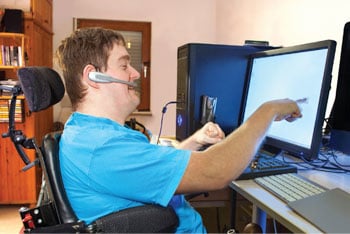 |
Employment ResourcesProject Launch offers many employment resources:
|
Parent Center Partners
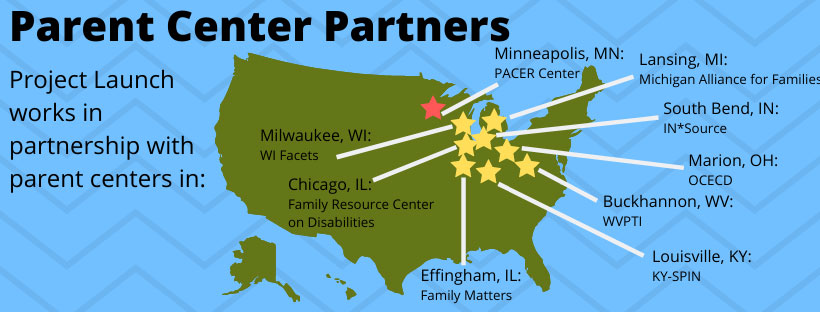
Project Launch works in partnership with parent centers in Indiana (IN*Source), Kentucky (KY-SPIN), and Ohio (OCECD).
In October of 2020, PACER Center received the Project Launch grant from the Rehabilitation Services Administration to develop and implement rural and urban parent and youth trainings in an 8-state area.
Learn more about our Parent Center Partners.
Video Resources
ASPE: Employment First
Brian Begin and Larissa Beck of the Association of People Supporting Employment First (ASPE) speak about the Real Jobs for real pay for all people with disabilities movement. Project Launch PTI Partner Call June 6, 2023 (44 minutes)
The Individualized Plan for Employment (IPE)
Amy Scherer of the National Disability Rights Network Provides information on the IPE. This is a Raise webinar funded by the Rehabilitation Services Administration. (13 minutes)
Social Security Disability: Applying and Qualifying for Benefits
Sara Cavallo, Work incentive Coordinator of the Social Security Administration, and Sarah Dicks, Medical Relations Officer of the MN Disability Determination Services, provide information on qualifying for benefits. (52 minutes).
Introduction to Work Incentives
Sara Cavallo, Work incentive Coordinator of the Social Security Administration, and Sarah Dicks, Medical Relations Officer of the MN Disability Determination Services, provide information on using Social Security Work Incentives. (12 minutes).
Social Security Representative Payees
Sara Cavallo, Work incentive Coordinator of the Social Security Administration, and Sarah Dicks, Medical Relations Officer of the MN Disability Determination Services, provide information on being a Social Security Representative Payee. (3 minutes).
Uncovering the Mysteries of Vocational Rehabilitation Services (VRS) and Work
Kristina Petronko, Supervising Attorney, and Delaine Remes of the Minnesota Disability Law Center provide information on VRS and work (56 minutes).
The Ins and Outs of Community Resources
Community Capacity Builders, Marcy LaCroix and Lauren Gower, provide information on the Disability Hub MN, a free statewide resource network that helps navigate the system and plan for the future (49 minutes).
Social Security Disability: Qualifying for benefits
Applying for Social Security Disability benefits is confusing. This video will give you an inside look at how the Minnesota Disability Determination Services decides who qualifies for benefits and what is needed in an effective application.
How Parents Can Help Their Youth Find Employment Success
This video series provides parents with five practical strategies for helping their youth be successful when first looking for employment.
Workplace Accommodations– Project Launch
In this 8:40-minute video, excerpted from a recent parent training, Anne Robertson Esq., staff attorney at the Minnesota Disability Law Center, discusses workplace accommodations ideas for youth with disabilities.
The Keys to Job Success: Tools to support executive function – Project Launch
In this 19:30-minute video, excerpted from a recent parent training, Sarah Giffen-Hunter, Assistive Technology Specialist at PACER’s Simon Technology Center, discusses employment tools to support executive function.
Social Media Tips for Parent Centers with Erin Thomson, PACER Intern
PACER Intern Erin Thomson provides Social Media Tips for Parent Centers.
Collection of PACER’s & Our Partners’ Youth Resources
Youth development and self-advocacy is an important skill to develop during the transition years. Moving into adulthood can be overwhelming. It’s important to know that there are supports to help youth set and reach their own goals for independence, education, and careers. The following resource collection is focused on understanding, developing, and facilitating youth self-advocacy, leadership, and goals.
- Youth Advisory Board Toolkit
Children’s Mental Health and Emotional or Behavioral Disorders Project Youth Advisory Board Toolkit is a prototype to help your organization or group benefit from the youth voice. - Transition IEP Checklist
WI FACETS’ Transition IEP checklist, their Project Launch Center of Expertise product, takes you through three step: preparing for, participating in, and following up after the IEP. - National Parent Center on Transition and Employment
The road to adulthood for youth with disabilities is filled with opportunity, and parents play a key role. PACER’s National Parent Center on Transition and Employment is ready with the information families want, presented in a way families can use. - Student and Young Adult
The Students and Young Adults section has information to help youth develop self-advocacy skills and gain a better understanding of how they can more effectively participate to increase success in the classroom, at home, and in the community. - Into Adulthood: Your Guide to Disability Access
The Minnesota Disability Law Center (MDLC) put together this guide to help young people with disabilities ages 14-24 and their families understand some of the programs and services that are available beyond high school. This guide can help youth and their families figure out if a program or service may be helpful. - Top 10 Self-Advocacy Tips for Receiving Services from Vocational Rehabilitation Services (VRS) or State Services for the Blind (SSB)
The Minnesota Disability Law Center (MDLC) put together these tips and basic rights for receiving Vocational Rehabilitation Services or State Services for the Blind. - Vocational Rehabilitation Services (VHS): Connecting students to work
VHS partners with high schools and community partners to provide job exploration and other work-related services at no charge to students.
The National Resources for Advocacy, Independence, Self-determination and Employment (RAISE) Technical Assistance Center works with the eight Rehabilitation Service Administration (RSA) - funded Parent Training & Information Centers to develop and disseminate information and resources that increase their capacity to serve youth and young adults with disabilities and their families. Ultimately ensuring that organizations create programs and supports that are not doing things “to” or “for” a youth, but “with” them. Some of RAISE’s resources include:
- Youth Engagement Toolkit
The RSA RAISE Center created the Youth Engagement Toolkit Series to help inform the staff who are supporting youth engagement efforts and provide strategies and tips that help their respective organizations to implement or improve their youth engagement practices. - Raise webinars
RAISE hosts webinars for the RSA PTIs, individuals with disabilities and their families, and for our partners. Recordings of the webinar are available here and on our YouTube page. Each webinar is accompanied by a PowerPoint slide deck, a list of relevant resources, and other handouts for use by participants. Click on any title below to view that webinar in more detail.
Project Launch is a project of PACER Center and is reported by the US Department of Education’s Rehabilitation Service Administration. The contents of this resource were developed under a cooperative agreement with the US Department of Education H23F140021. However, the contents do not necessarily represent the policy of the Department of Education and should not assume endorsement by the federal government.










